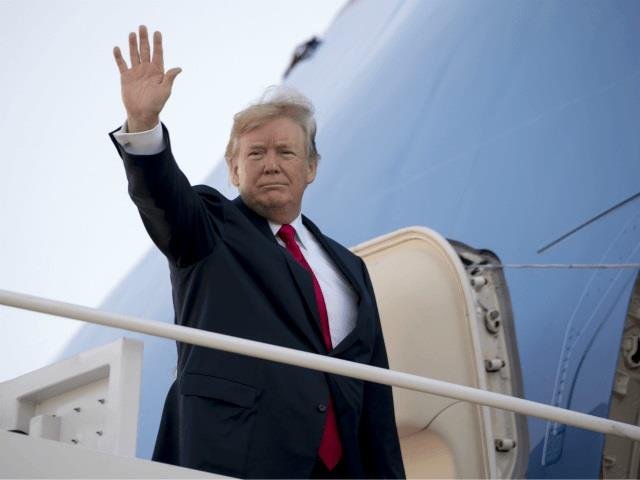SEOUL, Nov. 6 (Xinhua) -- With a busy agenda for U.S. President Donald Trump's upcoming state visit to South Korea, trade between South Korea and the United States and the nuclear issue on the Korean Peninsula are expected to be on top of the list, media reports here said Monday.
Revision on the bilateral missile guideline and the conditions-based transfer of the wartime operational control of South Korean troops from Washington to Seoul are also expected to be on the main agenda.
Trump landed in Japan on Sunday on the first leg of his 12-day Asian tour. He was scheduled to arrive in South Korea around noon on Tuesday, according to the presidential Blue House of South Korea.
Trump will hold a bilateral summit with South Korean President Moon Jae-in on Tuesday. On the following day, the U.S. leader will deliver a speech to the National Assembly of South Korea.
The nuclear issue of the Korean Peninsula is expected to be a major part of the bilateral meeting of the two leaders.
In September in New York, Trump and Moon agreed a principle that the nuclear issue of the Korean Peninsula should be resolved in a peaceful, diplomatic way while maintaining pressure and sanctions to induce dialogue.
The two presidents are expected to reconfirm the previous position this time, while putting their top priority on resolving the nuclear issue and the complete, verifiable, irreversible denuclearization of the Korean Peninsula.
Trade is also forecast to be on the main dialogue agenda during the summit meeting as the two leaders have shown different positions on the South Korea-U.S. Free Trade Agreement (KORUS FTA), which came into force in 2012.
Trump described the KORUS FTA as a "horrible deal," vowing to put things right by "renegotiating" it.
In response, Moon said that the bilateral free trade pact benefitted both countries and his administration had no reason to hold back in talks with Washington over amendment to the deal.
The United States claimed that its trade deficit in goods with South Korea more than doubled since the deal took effect five years ago, but South Korea said the bilateral FTA was not a direct cause of the U.S. deficit in goods trade.
According to South Korea, the country posted a deficit in services trade with the U.S., though it had a surplus in goods trade. When including the weapons import, the bilateral trade was almost balanced, South Korean experts said.
On the dialogue agenda, Moon and Trump are also expected to talk about the revision of the South Korea-U.S. missile guideline, which was first adopted in 1979 to set ceilings on the range of South Korea's homegrown ballistic missiles at 180 km and the payload at 500 kg in return for the U.S. transfer of missile technology to South Korea.
Following a ballistic missile test of the Democratic People's Republic of Korea (DPRK) with intercontinental capability in late July, Moon ordered a consultation with the U.S. side on the guideline amendment. The Moon government reportedly aimed to scrap the payload ceiling.
Moon and Trump are also predicted to discuss the conditions-based transfer of wartime operational control of South Korean troops from Washington to Seoul.
The wartime command was handed over to the U.S. forces after the 1950-1953 Korean War broke out. South Korea won back its peacetime operational control in 1994.
The Moon government allegedly aimed to regain its wartime operational command within the five-year term of President Moon who took office in May.


